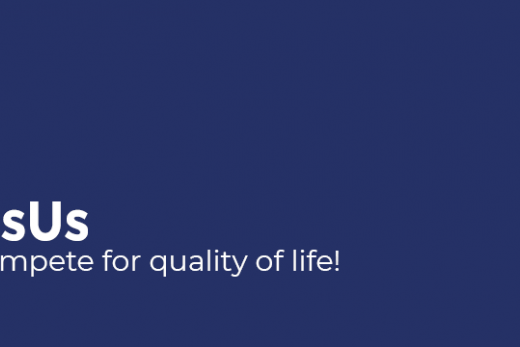15/09/2020
SensUs interviews Else
‘Measuring with ease to manage epileptic disease’ is the theme of SensUs 2020. SensUs 2020 challenges Teams to develop biosensors for the detection of valproate, an important drug for patients with epilepsy. We spoke with Else about her experiences with this disease.
My name is Else, I’m 55 years old. I was officially diagnosed with epilepsy when I was in my twenties. However, before my diagnosis, I passed out multiple times. Nevertheless, the doctor said that it was common for my age category and that I should not worry too much. Therefore, I didn't expect to get the diagnosis. It had always happened when I was alone. When I was 18, it was the first time another person saw me during a seizure and they noticed directly that it was not the same thing as fainting. A few years later, when I was at work at the general practice, I had an epileptic seizure and my colleagues recognized it as epilepsy. On the EEG was no activity visible, so a clear diagnosis stayed out.
I have not had an epileptic seizure in the last 21 years, which is quite special. I am still using anti-epileptics and I’m afraid to quit. I am afraid because, after a seizure, you are not allowed to drive for a certain time or go on a flight, and I do not want to risk not being able to do those activities. Driving my car represents my freedom and my self-reliance, I need my car to go to work or to visit my family up in the north.
Having children has always been a dream for me, despite the restrictions my disease imposes on my body. I am a proud mother of two sons. Unfortunately, they have both inherited the disease. I have been using valproate, depakine, for 35 years now. I detest the medicine, one of the biggest side-effects of valproate is that it can slow down metabolism which makes you gain weight. Other known side-effects are declining sight, declining memory capacity, anemia, and hair loss. It is also not known what the long term effects are after taking this medicine for years in a row. These were the main reasons I definitely did not want my sons to use the same medication, even if the doctor would advise valproate. I consider myself an experiential expert, that’s what you are a mom for, protecting your children. I do not want my kids to experience what I have endured.
It has taken me 15 years to find the right treatment, so I am not keen to switch to another form of medication or another method. This also includes alternative treatment with electrical shocks etc. A biosensor to measure the dose of medicine is not my biggest need, I am past that phase. There are many new developments in the healthcare sector. For me personally, I would prefer an easy method to measure iron deficiency. Like a glucose meter can measure glucose levels, I would like to be able to better monitor my anemia. Another thing that could be improved is the administration of medication. It is really important to take your medication consistently and on time, however, I tend to forget my medicines sometimes. My son is younger and is all over the place with his medication. A system that could do this automatically, would take it off your mind to constantly having to remember to take your pills.
What I think is a problem with epilepsy is the stigma. People do not understand what is happening during a seizure and think it is weird or crazy. People tend to associate the disease with mental defects. Recently, I had a situation when the light was bothering me. Since the light could trigger my epilepsy, I asked to dim the light. People thought I was joking and did not react well. I hope this international competition will make young people more familiar with the disease and reduce its stigma.

Facebook
YouTube
LinkedIn
Instagram